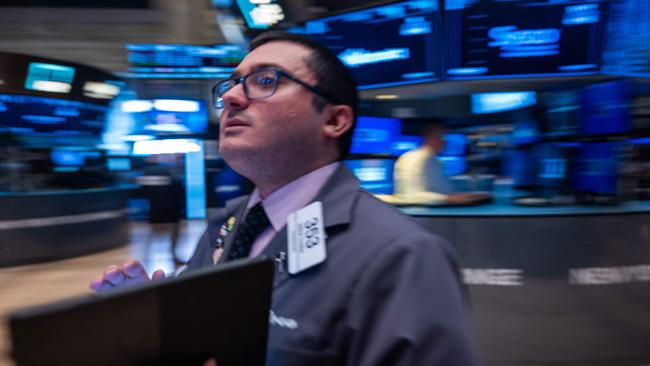Oaktree Capital’s Howard Marks on the miscalculation of markets
There’s only one rule that billionaire investor Howard Marks says is worth following during market selldowns, and it holds true for rallies too.

Business
Don't miss out on the headlines from Business. Followed categories will be added to My News.
If there was any one rule to follow as a guide for investing, it should be markets behave mostly irrationally nearly all the time.
That’s the view of billionaire investor Howard Marks who saw the same obvious mistakes play out during the stomach churning slide in global shares earlier this month. The drop was followed by the rebound that has returned Wall Street back to near record levels.
While this statement around irrationally probably sounds too simplistic, it’s ever optimistic investors who have a bias to miscalculate, the co-founder of US $300bn hedge fund Oaktree Capital says.

“The investment world might be less unstable if there were immutable rules – like the one governing gravity – that could be counted on to always produce the same results.”
“But there are no such rules, since markets aren’t built on natural laws, but rather the shifting sands of investor psychology,” Marks says in his latest memo to clients.
For decades, the Oaktree boss has spoken to about the path to achieving investment outperformance. He follows on this theme even with the backdrop of wild swings.
Every share or asset has an intrinsic value and it's the primary job of the investor to take note when prices strays from this value and figure out how to act in response, he says.
Should this involve emotion? Never, says Marks, rather it comes down to old-fashioned analysis.
Earlier this month, Wall’s Street’s benchmark S&P 500 fell on three consecutive trading days from August 1 by a total of 6.1 per cent. Through the same period, Australia’s S&P/ASX 200 dropped 5.7 per cent and has almost recovered all its gains.
The fall was spurred on by a succession of single events that tipped it from optimism to pessimism.
US Fed officials confirming an interest-rate cut was likely, then the Bank of Japan issued the biggest hike to that country’s cash rate in 17 years, playing havoc with the carry trade. Then some mixed US economic data was finished off on news that investor Warren Buffett was selling a large portion of his holdings in Apple.

Marks, who was in Brazil when markets started sliding, says through the selldown he saw a replay of the same themes he has witnessed for decades.
“In the real world, things fluctuate between ‘pretty good’ and ‘not so hot,’ but in investing, perception often swings from ‘flawless’ to ‘hopeless.’ – That says about 80 per cent of what you need to know on the subject,” he says in the memo.
Mood swings do a lot to alter investors’ perception of events, causing prices to fluctuate madly.
“When prices collapse as they did at the start of this month, it’s not because conditions have suddenly become bad. Rather, they become perceived as bad,” he says.
There’s always the same factors that contribute to this process:
• A heightened awareness of things on one side of the emotional ledger;
• A tendency to overlook things on the other side; and, a tendency to interpret things in a way that fits the prevailing narrative;
• What this means is that in good times, investors obsess about the positives, ignore the negatives, and interpret things favourably. Then, when the pendulum swings, they do the opposite, with dramatic effects.
Superior investing always comes down to skilful analysis and superior insight, not adherence to formulas and guidelines, the Oaktree boss says.
He points out fundamentals – the outlook for an economy, company or asset – don’t really change much from day-to-day. A company worth $10bn today doesn’t really change enough to be worth $12bn tomorrow.
That means the daily price changes on markets are mostly about changes in market psychology and therefore changes “in who wants to own something or un-own something”.
He says it’s these big fluctuations in markets show that psychology is changing radically.
The bottom line is, the irrationality of markets is never going to go away.
The astute investor needs to know when to sit on the sidelines and stay out of the emotional whirlwind.
Failing that, there’s always a trip to the psychiatrist.
johnstone@theaustralian.com.au
Originally published as Oaktree Capital’s Howard Marks on the miscalculation of markets



